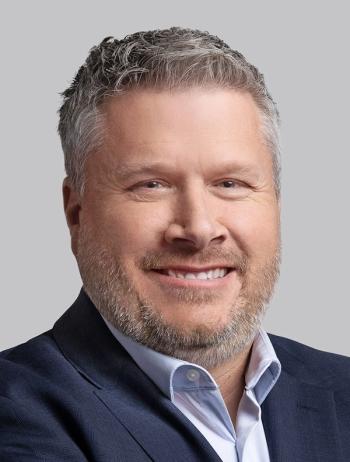
3 key money matters for new medical practices
Many physicians don’t know where to begin when starting their own practice. Finding and getting referred to the right professional team often is the best first step.
Many physicians don’t know where to begin when starting their own practice. Finding and getting referred to the right professional team often is the best first step. Working with an attorney, certified public accountant (CPA), wealth management team and practice manager allows physicians to focus on their practice and patients.
“I don’t always have time to stop and think about the business or financial side of things,” says Fadi Salibi, MD, an infectious disease physician in Henderson, Nevada. “The right team can ensure that the proper steps are taken to set the practice up properly.”
Establish a robust business plan
Thinking through some worst-case scenarios is often helpful when taking the first steps in overall practice planning. Often the largest financial concerns that threaten a physician’s financial well-being are the potential for lawsuits, excess taxation or compromised cash flow. Most physicians will start with selection of a corporation that carries some limited liability characteristics.
Your legal counsel will help you choose the most appropriate corporate structure that fits your practice model and state of residence. Ideally, your attorney will go a step further and help you protect your personal wealth through trust planning and other strategies with your wealth manager/financial adviser. An insurance professional can work with you to properly insure your cash flow against risks of death and disability. A CPA should work alongside your attorney and wealth manager to help you decide how your corporation should be taxed.
“Having a great plan and a great team, I feel like I can diversify into other areas of business with the right support and feedback,” Salibi says. “Physicians should think about diversifying their cash flow and building a well-rounded investment portfolio.”
Take on taxes with a retirement plan
Once the basics are set up, many successful physicians find themselves with two major issues to address: taxes and employees. “Finding and keeping great employees has been my number one worry as a practice owner, and taxes top my list of financial concerns,” Salibi says.
Work with your wealth management team to find and implement the right qualified retirement plan thatwhich can remedy these issues by rewarding employees and providing a method for the physician to save money towards their own retirement on a pre-tax basis, often alleviating significant tax burdens. Additionally, non-qualified plans, annuities and insurance products can sometimes be used to reward key members and provide an element of control over how the practice owner rewards and retains those individuals.
Find great employees
A staggering number of physicians often wait until it’s too late to seek out the right professional team and establish some of these basic steps. Seek out the right professionals and begin by going through a process of discovery with them.
This process should take place at least once per year and some of the steps outlined here will just be the beginning. Your selected team will likely ask some pointed questions, and you should too. Ensure that your professional team works together and is in good contact. The best scenario is one that has you building a practice that is creditor protected, tax efficient, and builds towards a lifetime of financial security.
Newsletter
Stay informed and empowered with Medical Economics enewsletter, delivering expert insights, financial strategies, practice management tips and technology trends — tailored for today’s physicians.






